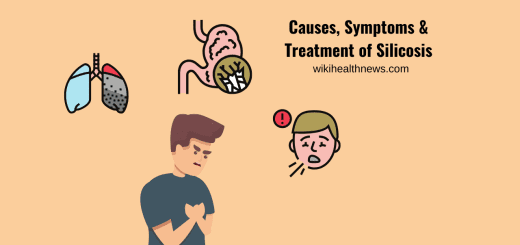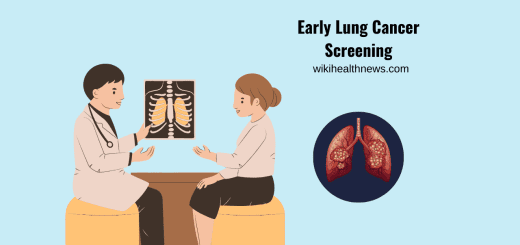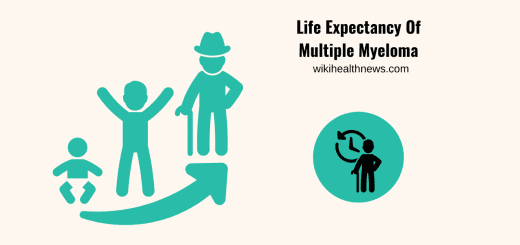What causes Secondary Infertility?

What is secondary infertility?
15 – 20 % of fertile women often experience difficulty in conceiving after a childbirth or an abortion. This condition is called secondary infertility and it affects a woman socially and emotionally. The causes of secondary infertility are also same as primary infertility but it confuses a woman who has already experienced a pregnancy.
Ten factors leading to Secondary Infertility:
Secondary infertility can happen due to any of the following factors
- Changes in the lifestyle of partners
- Infection causes changes in female reproductive organs
- Changes in male fertility profile
- Age related decline in fertility can cause secondary infertility
- Worsening of reproductive diseases
- Ectopic pregnancy affecting tubal conditions
- Pelvic surgeries affecting fertility
- Decline in uterine receptivity due to diseases of endometrium
- Onset of new medical conditions
- Unexplained infertility
How Changes in the lifestyle of partners affects fertility?
Ovulatory disorders are primarily related to food and lifestyle. Eating polyunsaturated fats, less dietary fibers, carbohydrates with high glycemic index are key factors in causing diet related fertility disorders. These dietary factors often increase weight and subsequently leads alteration in hormone balance. With gain in weight the periods become irregular and the woman ends up with fertility problems. These effects of food combined with a sedentary lifestyle causes secondary infertility in a previously fertile woman. A combination of fertility diet, healthy weight and increased physical activity was found to lower the risk of female infertility due to the ovulatory disorder by 50 percent. Similarly, other changes in lifestyle like drinking alcohol, smoking, sleep deprivation and stress related problems can contribute to secondary infertility in both the partners. Smoking can cause male infertility after few years due to changes in sperm motility and reduction in number of healthy sperms in a previously fertile male partner.
What are the Infection related changes in female reproductive organs which leads to secondary infertility?
In a previously fertile woman infection of pelvic organs can lead to secondary infertility which can follow
- Medical or surgical termination of pregnancy
- Spontaneous abortion
- Caesarean delivery
- Normal vaginal childbirth
- Infection in immediate post delivery period like pelvic infection, repeated urinary tract infection etc.
- Heavy bleeding following childbirth can cause stoppage of menstruation (SHEEHANS SYNDROME)
These infections can cause uterine problems like thin endometrium, unhealthy endometrium or tubal blockage which in turn causes secondary infertility.
Other infection like Hepatitis, HIV or sexually transmitted diseases affects both partners and should be treated before conceiving as these diseases can get transmitted to the child if left untreated. Sometimes these infections can cause blockage in fallopian tubes or male reproductive tract blocking passage of sperms.
How male fertility profile can change with time?
Men continue to produce sperm throughout their lives, a man’s decrease in sperm characteristics occurs much later. Sperm quality deteriorates somewhat as men get older, but it generally does not become a problem before a man is in his 60s. there is no maximum age at which a man cannot father a child, as evidenced by men in their 60s and 70s conceiving with younger partners. However aging men may develop medical illnesses that adversely affect their sexual and reproductive function. Alcohol, Obesity and diabetes can affect sperm quality which are acquired due to lifestyle changes over time. Sperm production can deteriorate with increasing period of smoking and previously fertile men can experience infertility problems.
What are age related changes experienced in the couple with secondary infertility?
A woman’s age is the most accurate test of egg quality, because egg quality decreases as the woman approaches menopause. An important change in egg quality is the frequency of genetic abnormalities which make the aging woman less likely to become pregnant and more likely to have miscarriages. As a woman gets older, more and more of her eggs have either too few or too many chromosomes. That means that if fertilization occurs, the embryo also will have too many or too few chromosomes. Age related changes in the female can be measured by the level of hormone called AMH (anti mullerian hormone). A reduced AMH predicts low egg reserve and also reduced quality of eggs. However, young women may have reduced ovarian reserve due to smoking, family history of premature menopause, and prior ovarian surgery. Young women may have diminished ovarian reserve even if they have no known risk factors.
Fertility changes with age. Both males and females become fertile in adolescence period. In Girls, the reproductive years is marked by the onset of ovulation and menstruation which continues till menopause. Generally, reproductive potential decreases as women get older, and fertility can be expected to end 5 to 10 years before menopause.
Which are the reproductive diseases that worsen with time and cause secondary infertility?
Diseases like endometriosis worsen with time as the chocolate cysts increase in size and destroy the ovaries slowly. Pelvic tuberculosis, hydrosalpinges, fibroid uterus, endometrial polyp, ovarian cysts are some of the disorders which progress with time and can lead to secondary infertility. At times onset of new fibroids with in the uterine cavity retards implantation and can lead to recurrent miscarriages.
How Ectopic pregnancy can cause secondary infertility?
After a child birth or a termination of pregnancy infection can set in and affect the healthy fallopian tubes or worsen previously diseased tubes. Tubal diseases are a risk factor for ectopic pregnancy that is when the pregnancy happens to occur outside the uterus. Even though the woman has delivered a child the progressive tubal diseases can lead to ectopic pregnancy later on. Once ectopic pregnancy happens the tubes are destroyed further and double the risk of another ectopic. These women should consider seeing a fertility specialist before planning a pregnancy as ectopic pregnancy can lead to life threatening bleeding.
Can pelvic surgeries affect fertility?
Pelvic surgeries like myomectomy (removal of fibroid tumors), caesarean section for child birth, appendix removal, removal of ovarian cyst or tumor, laparoscopy for fertility testing, termination of an unplanned pregnancy, surgery for ectopic pregnancy can lead to secondary infertility in women. These surgeries can cause fertility problems due to either tubal blockage, damage to the ovaries reducing ovarian reserve by damaging the uterine bed for implantation. At times bleeding disorders or tumors of uterus can warrant a hysterectomy (removal of uterus) making the women unable to carry further pregnancy. In these cases, surrogacy is advisable if fertility is required by the couple.
What causes decline in uterine receptivity?
Age related decline in uterine receptivity is a natural phenomenon. Other factors contributing to decreased receptivity can be tuberculosis affecting endometrium, fibroids dipping into uterine cavity, adenomyosis, endometrial polyp and thickening of endometrium. Secondary infertility due to endometrial factors may be because of hormonal changes, decreased blood flow due to diseases like hypertension or physical interference with pregnancy as in endometrial polyp or fibroid uterus.
Which are the new onset medical conditions causing secondary infertility?
Secondary infertility can also occur due to medical diseases like diabetes, hypertension, hypothyroidism etc. Some of the autoimmune disorders which run in family can start at a later age in life and compromise fertility in a woman who has already experienced pregnancy. Genetic disorders affecting egg or sperm also give rise to repeated miscarriages and need further evaluation.
Can Unexplained infertility be blamed for this condition?
These patients may have an underlying disorder which is misdiagnosed or under-diagnosed due to poor quality of tests. Endometriosis, immunological infertility, ovarian ageing, tubal infertility, premature ovarian ageing, under-diagnosed thyroid disorders can contribute to such a situation as diagnosis of this condition is purely subjective. At times, ultrastructural alterations like thick covering of egg (thick zona) or sperm deformities can be responsible for secondary infertility, but remain undiagnosed unless the couple go for higher treatment like IVF/ICSI.
Secondary infertility needs counselling with fertility specialist who may suggest complete evaluation of the couple. Superovulation with IUI is an effective second-line treatment, and IVF/ICSI is the final treatment option for secondary infertility generally offered in a tertiary level center.











